According to the State of Sales Report, 67% of sales reps don’t expect to meet their quota, spending 70% of their time on non-selling tasks. They won’t make it even if they try.
No wonder vast majority of sales teams are experimenting with or have fully implemented AI.
But what does this actually look like in a real sales environment?
In this article, we’ll examine how AI fits into today’s sales workflows. You’ll see how businesses are using AI agents for sales, along with some practical examples and tips for getting started.
Boost your sales efficiency with Lyro AI Agent
What is an AI sales agent?
An AI sales agent is a type of virtual assistant that uses artificial intelligence, natural language processing, and machine learning to support real conversations with leads. Unlike traditional bots that stick to basic scripts, AI agents can understand what someone is asking, respond in a helpful way, and keep the interaction moving forward.
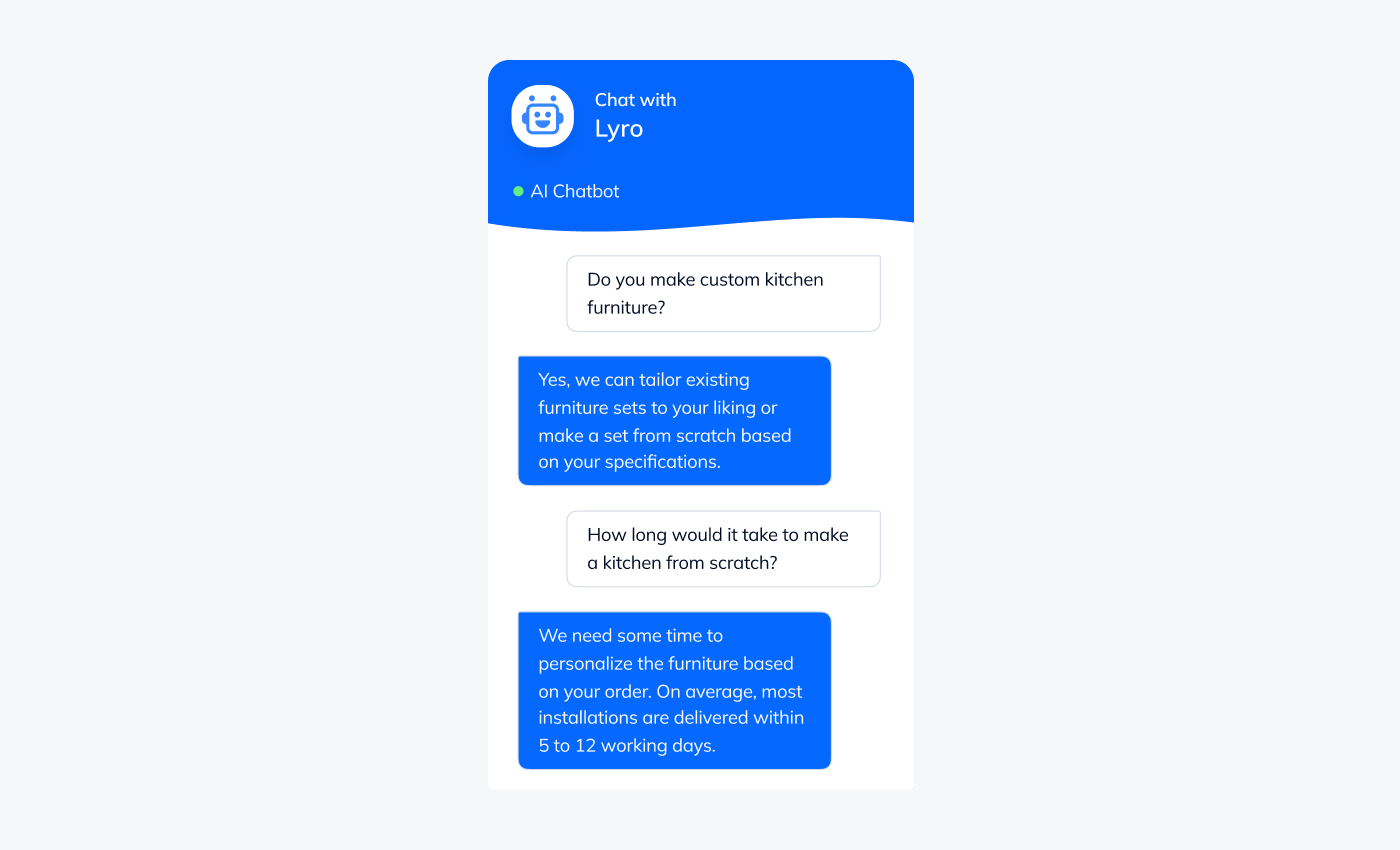
Lyro AI Agent, for example, helps with tasks like lead qualification and follow-ups. It answers questions, gathers key details, and can pass the conversation to a human when needed. Moreover, if someone asks about specific plans or product options, it can recommend the right solution and offer clear next steps.
This kind of support helps sales managers and teams stay focused without missing opportunities.
Benefits of using AI agents in sales
It’s not uncommon for salespeople to feel stretched thin. They’re busy chasing leads, sending follow-ups, and juggling admin work. And the work day is over before they even realize it. Your agents ran out of time to have any strategic conversations that actually closed deals.
And this is backed by data. Sales reps spend only about 28% of their week actually selling, with the majority of their time consumed by tasks like deal management and data entry. Administrative tasks alone account for approximately 8.8% of their time. This means that over two-thirds of their workweek is dedicated to non-selling activities, leaving limited time for meaningful customer interactions.
That’s where AI agents step in. They’re built to reduce the manual workload and help sales teams respond faster without needing to expand headcount. And since 83% of sales teams that use AI see revenue growth, it’s clear why these solutions are becoming an integral part of the modern sales process.
Here’s how AI agents help:
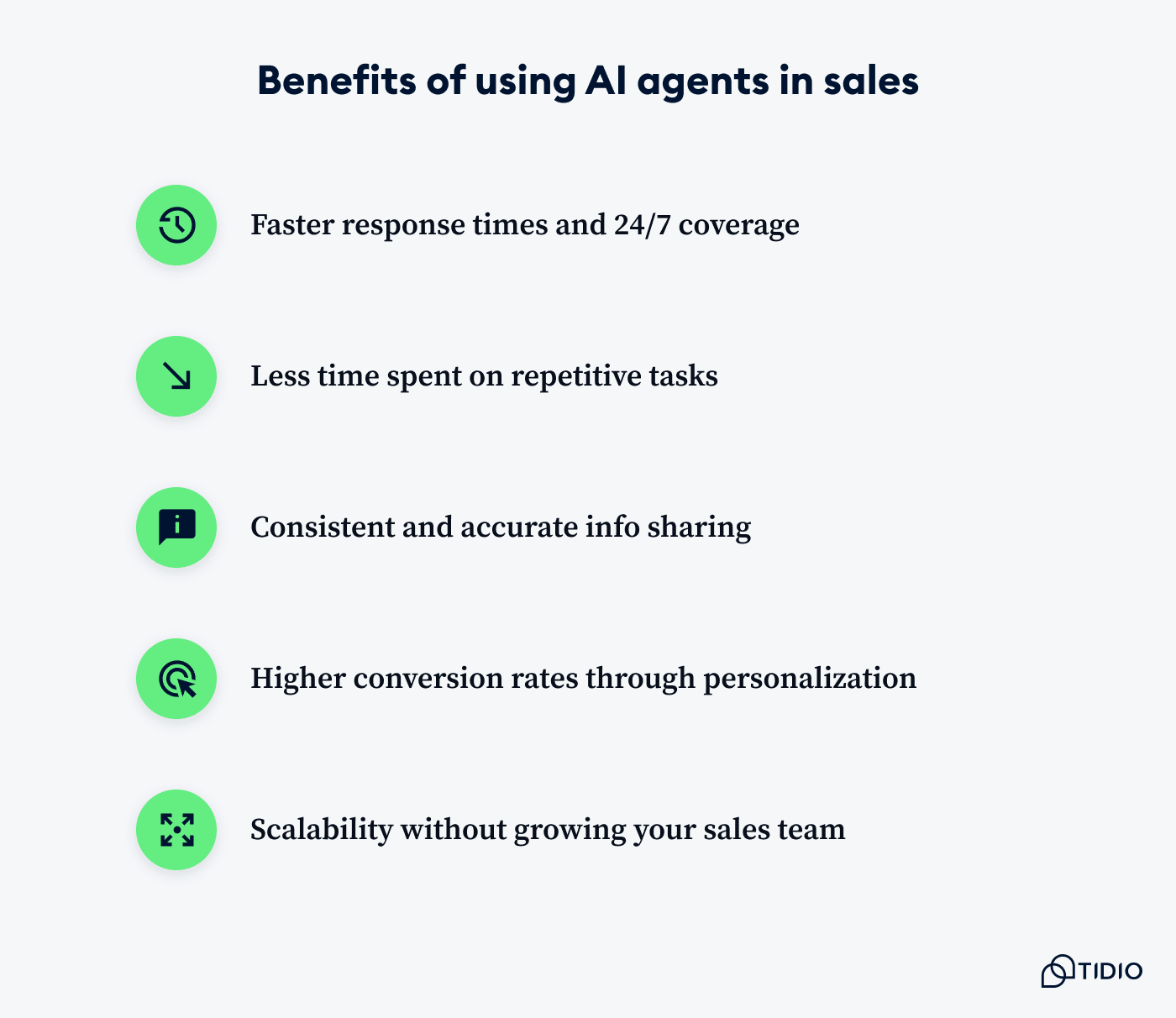
- Faster response times and 24/7 coverage: AI agents engage leads immediately, no matter the time. So, fewer missed opportunities and a smoother customer experience. In fact, as many as 82% of users expect quick turnarounds.
- Less time spent on repetitive tasks: Instead of answering the same questions again and again, sales reps can rely on AI technology to handle routine inquiries. This frees them up to focus on deals that need a human touch.
- Consistent and accurate info sharing: AI-powered sales agents pull responses from a central source, like your knowledge base or product catalog, so leads always get clear, up-to-date information. It helps avoid confusion and keeps messaging aligned across the team.
- Higher conversion rates through personalization: When a lead asks about a product, AI can tailor the response based on their previous questions, creating personalized experiences and increasing the chances of conversion. Around 90% of consumers say the experience a company provides matters as much as the quality of services, and personalization is a great way to meet that expectation.
- Scalability without growing your sales team: As lead volume grows, AI agents can take on more of the initial sales engagement, keeping the pace up without adding new hires. It’s a cost-effective way to support a growing pipeline without burning out your team.
Read more: Here are the best sales tools for sales professionals and marketers. Also, check out real-life examples of ecommerce brands that increased sales with AI chatbots.
Top ways AI agents are used in sales today
AI is playing a bigger role in the sales process than ever before. Aside from automating tasks, it’s also helping teams move faster and spend more time on deals that actually matter.
Whether you’re trying to qualify leads or support product discovery, AI can be plugged into many different touchpoints across the funnel. Here’s how it’s being used in practice.
1. Lead qualification
Instead of relying solely on contact forms or manual research, AI can interact with visitors in real time and collect details to check if the person is a good lead. It asks the right questions and moves people down the funnel without delay.
For example, Tidio’s Lyro AI Agent helps qualify leads automatically by chatting with visitors and identifying potential opportunities based on their responses. If sales conversations reach a point that needs a human touch, it smoothly routes the lead to a sales rep or creates a ticket, without losing context.
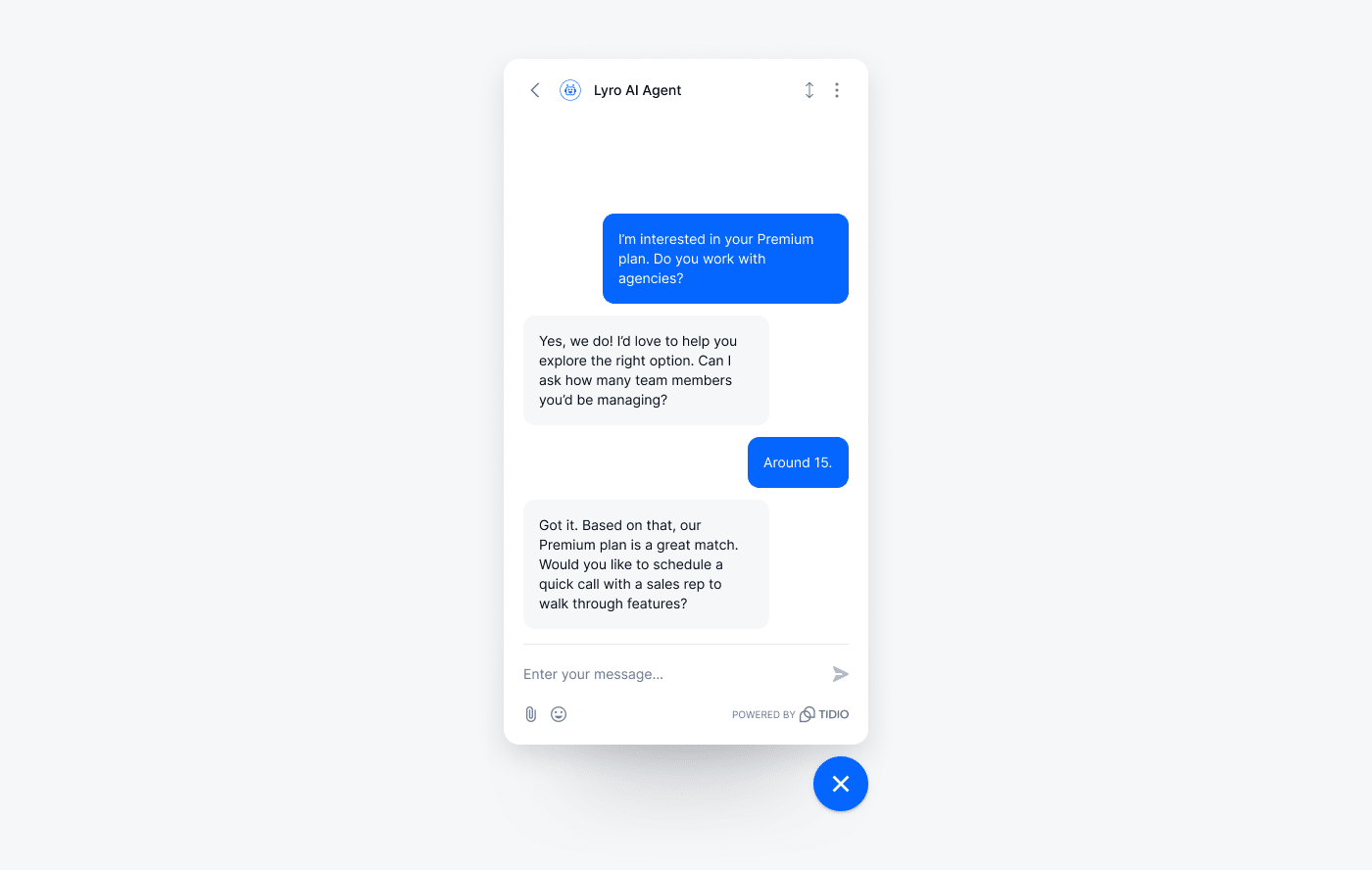
Read more: Explore the best lead generation chatbot use cases, tools, and tips.
Discover how Lyro helps sales reps convert more leads with less effort
2. Pre-sales support and product guidance
Before someone fills out a form or signs up, they usually have questions. These can be anything from feature details to available plans, and AI agents can step in to help users find what they need.
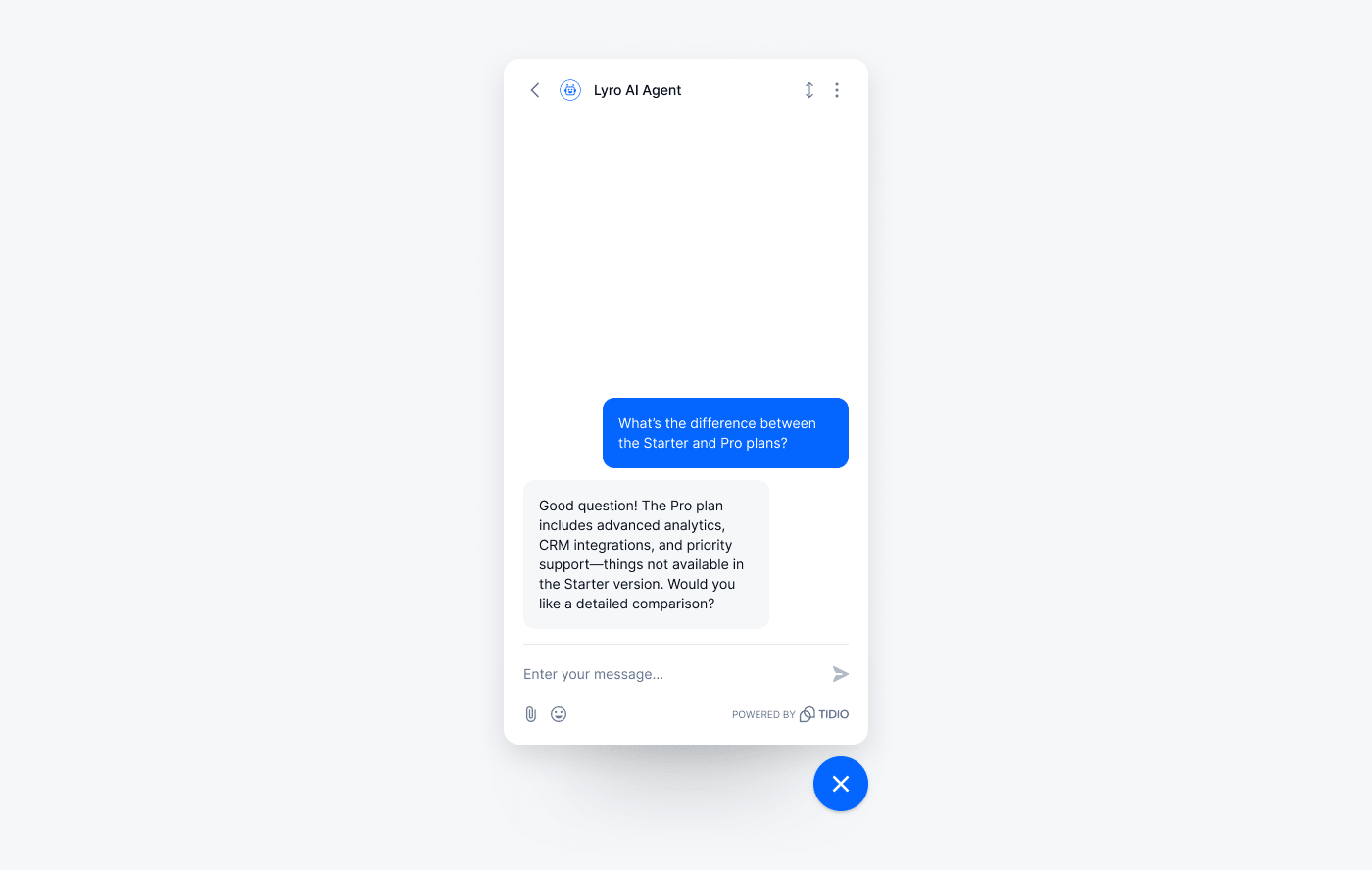
Lyro AI supports these kinds of customer interactions by giving accurate, on-brand answers based on your site’s content and FAQs. If a visitor asks about pricing or available options, Lyro can explain how each product works, compare plans, and even recommend the best fit if the user provides a few preferences.
Read more: Find out all about real-time sales and how it helps boost your revenue.
3. Meeting scheduling and handover
After qualifying a lead, the next step is booking time with your team. AI agents can manage and streamline this part, too. They collect relevant info and help people schedule meetings without back-and-forth sales emails.
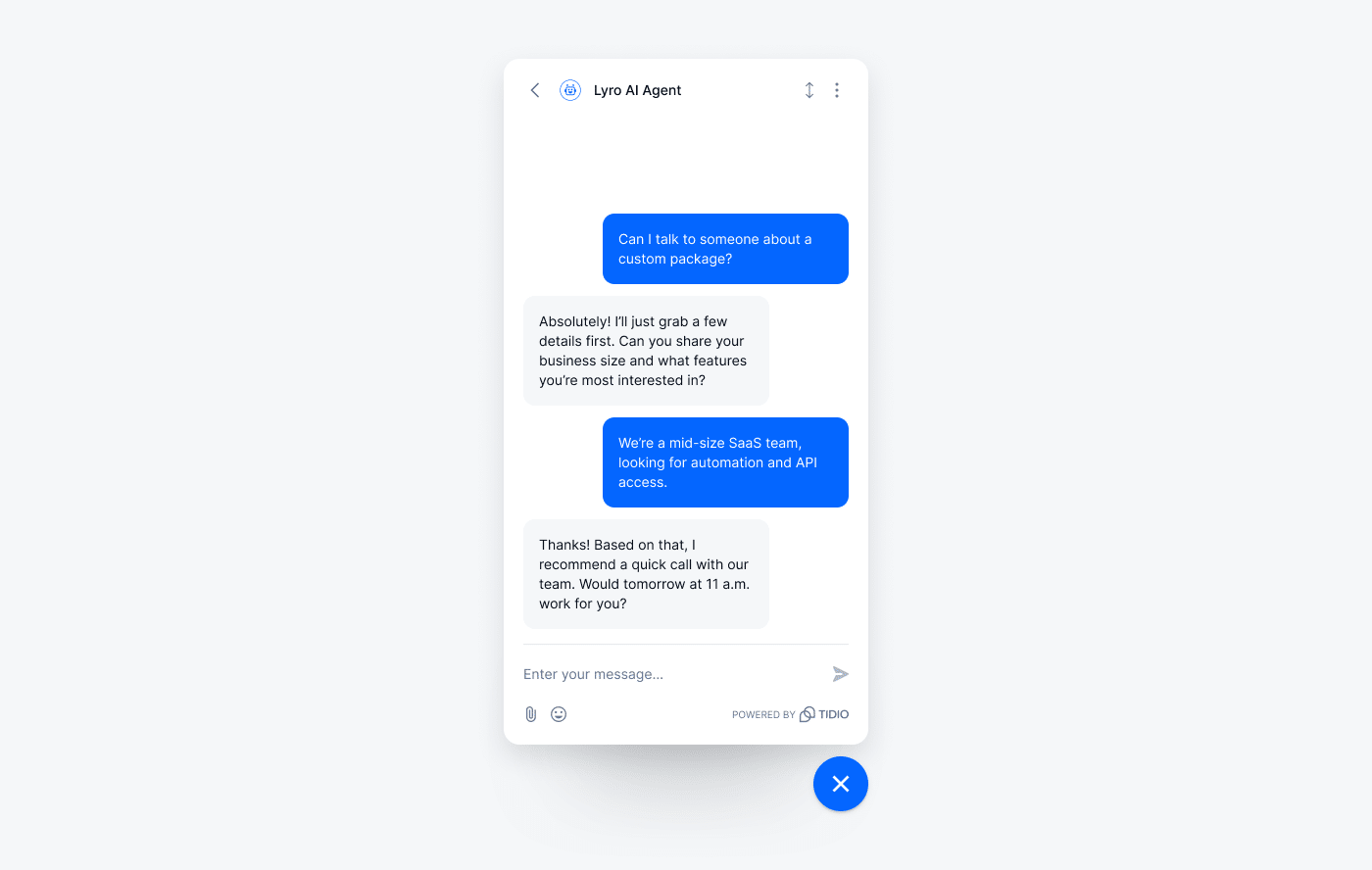
Lyro integrates with your calendar tools and CRM systems, so once a visitor is qualified, it can help them book a call or demo slot. It also passes along all the details to your sales team, making sure they’re prepared before the call even begins.
4. Personalized follow-ups
Not every lead converts on the first visit. AI can continue the conversation over time, picking up where things left off. It can also share useful follow-up messages that actually match the customer’s interest.
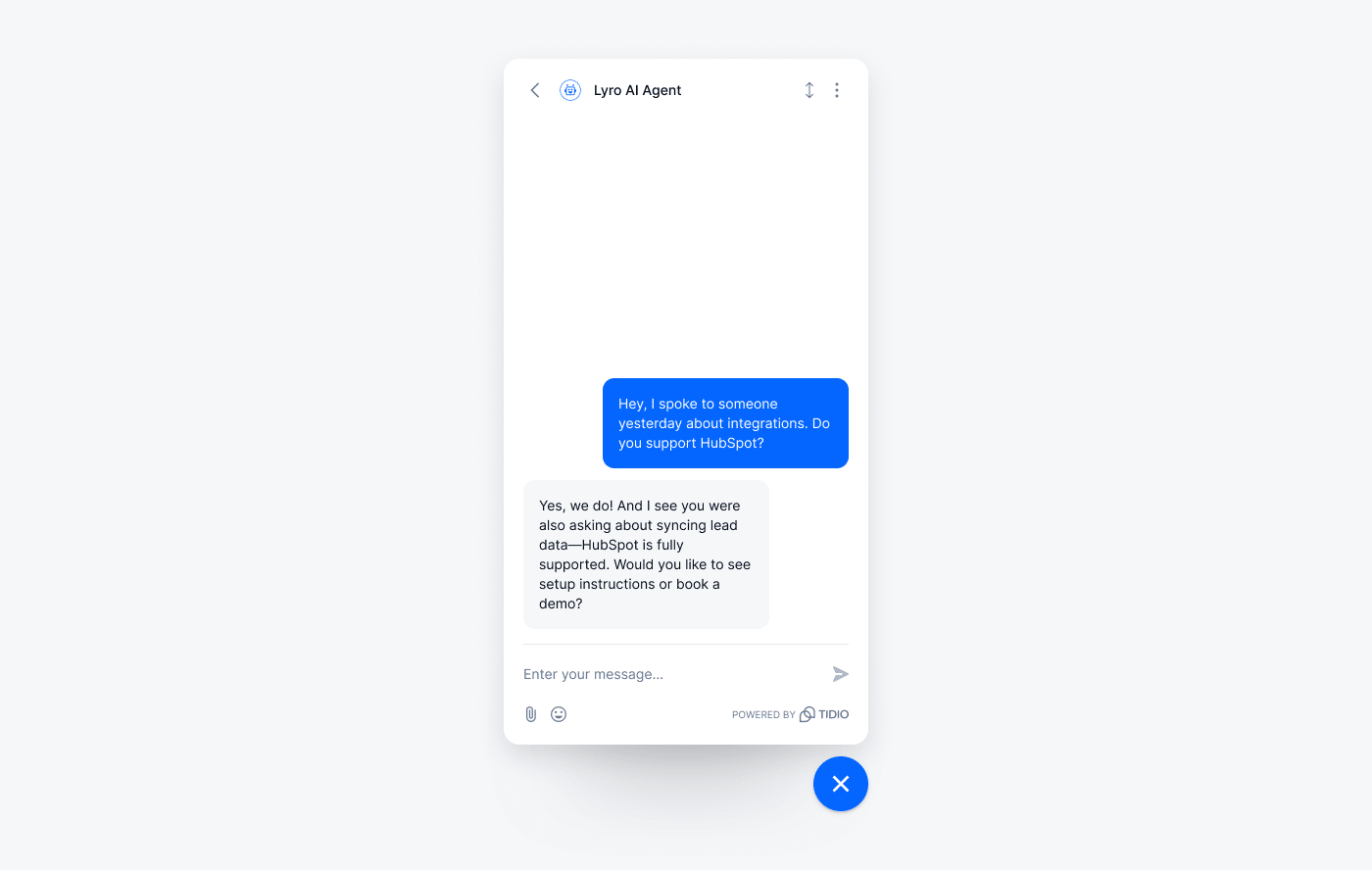
Lyro keeps context from past conversations and uses it to offer relevant responses. If a user previously asked about one product, Lyro can follow up with additional info, a related feature, or help the customer take the next step, like starting a free trial.
5. Conversion support
When someone’s close to converting, every question counts. AI can be the first to respond when someone browses your site. It can answer high-intent questions and resolve any doubts.
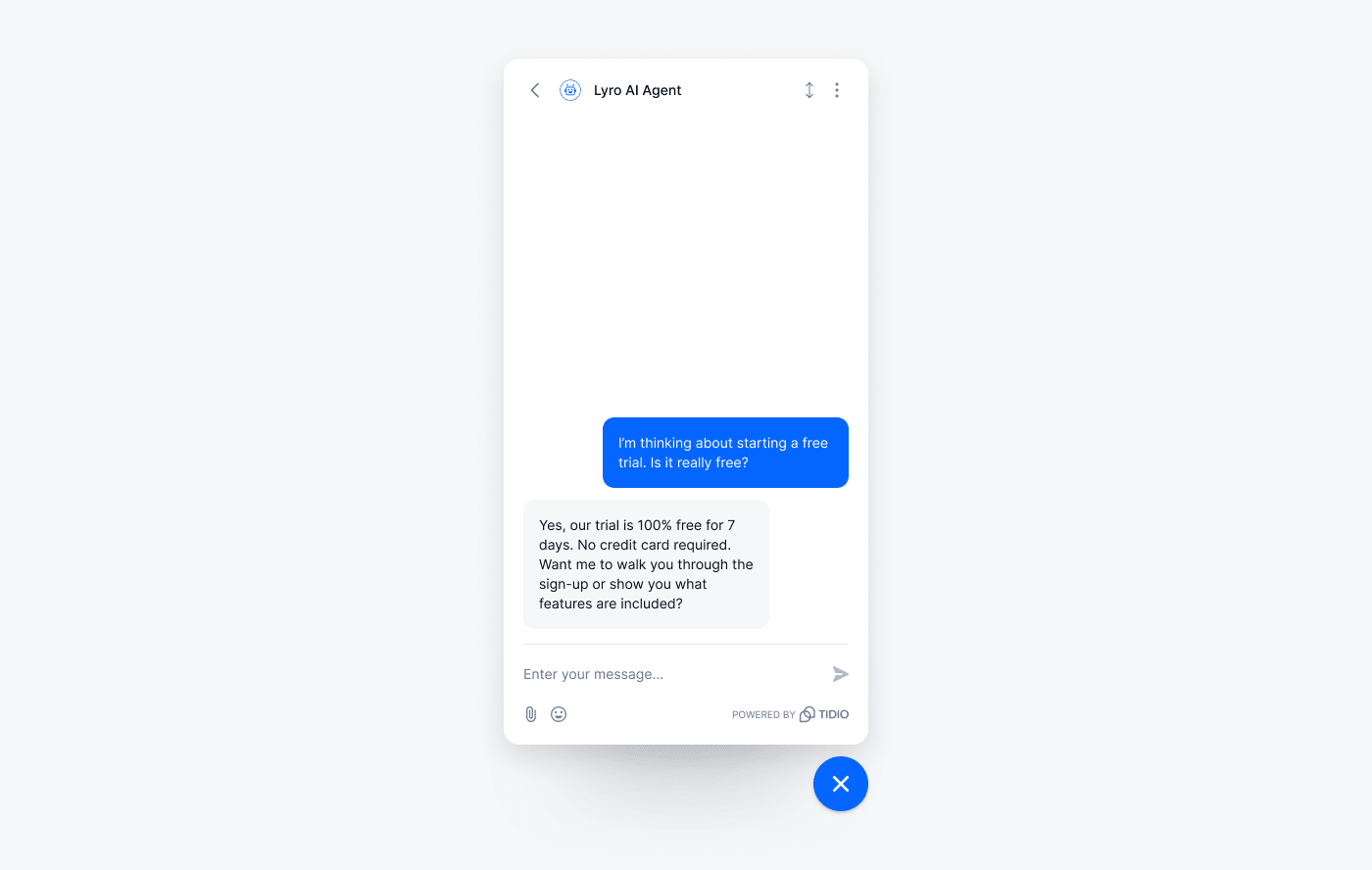
Lyro responds instantly to inquiries from prospects who are ready to act. Whether someone’s asking about a free trial, looking for a specific feature, or needing a quick answer before checkout, Lyro makes sure the interaction gets priority and moves forward quickly. This kind of real-time assistance can make a big difference when timing is everything.
Read more: Check out the best AI sales funnel software available.
Industries using AI sales agents
From SaaS to real estate, companies in different industries are using AI for sales agents to qualify leads and provide fast, helpful responses. No matter the niche, the goal is the same—keep the process smooth and free up time for the human team.
Here’s how sales teams in different industries are putting AI sales agents to work.
SaaS and B2B
SaaS and B2B companies often deal with complex products and long sales cycles, which means leads come with lots of questions. AI agents step in to provide consistent, on-brand information about features, pricing tiers, and integrations, even when your team is offline. In enterprise B2B environments, AI can also assist with tasks like RFP automation, helping sales teams generate accurate proposals faster and reduce manual workload. That way, potential customers get the guidance they need without delay.
With Lyro, you can automate answers to FAQs. If a lead starts asking about CRM compatibility or API access, Lyro can connect to CRM data. It can then share and summarize accurate information, and even offer to schedule a follow-up with your sales team. It keeps conversations moving, even when reps are focused elsewhere.
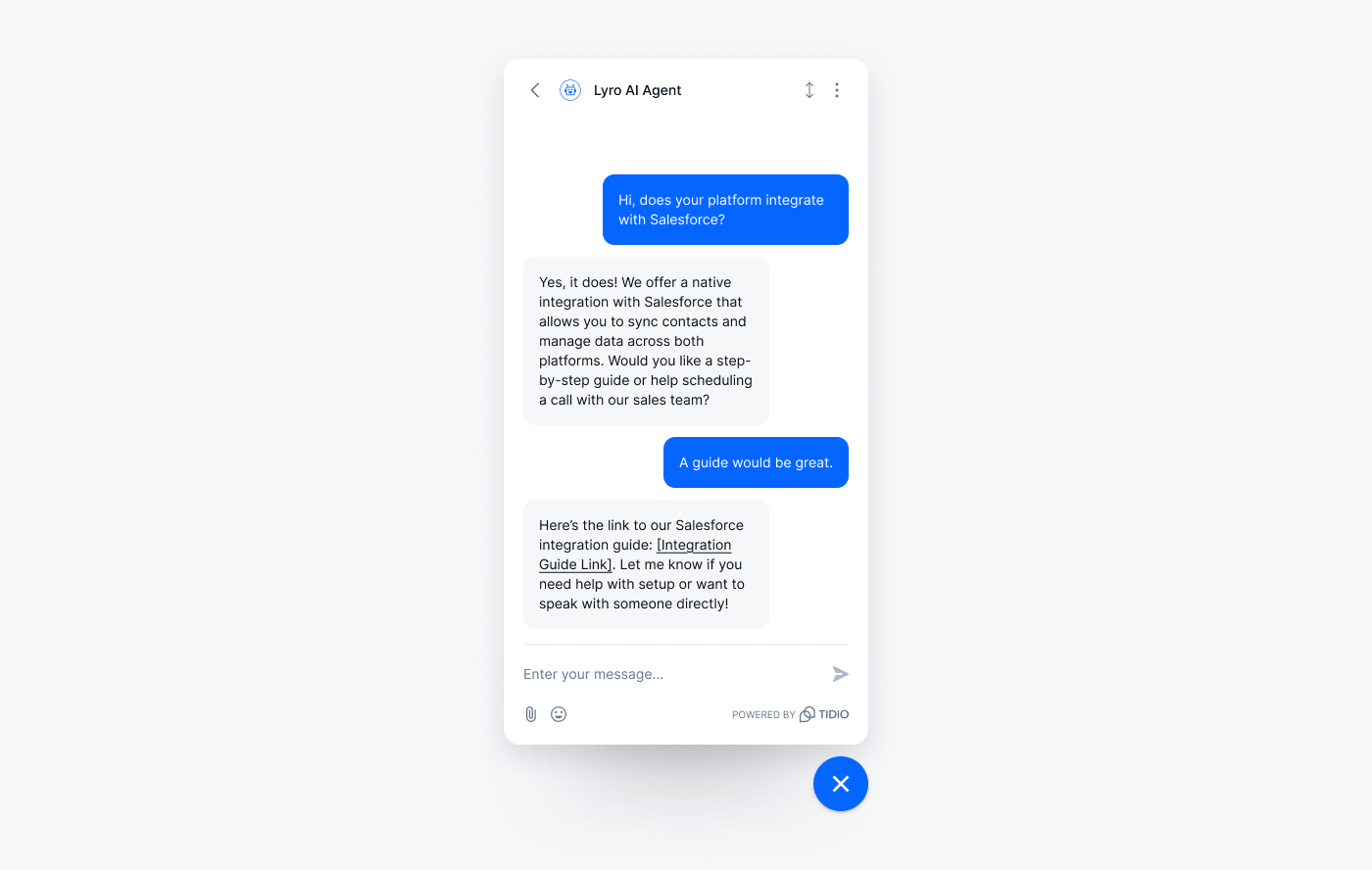
Read more: Here are the best B2B lead generation strategies for your business.
Ecommerce
Whether someone’s asking about a promo code or wondering which product is right for them, a delayed response could mean a missed sale. That’s where an AI assistant for sales becomes a key part of the storefront experience.
Lyro helps by answering product questions, assisting potential leads with sizing or availability, and offering relevant product recommendations. It can also support returns, shipping inquiries, and discount eligibility, helping your customers move confidently from browsing to buying.
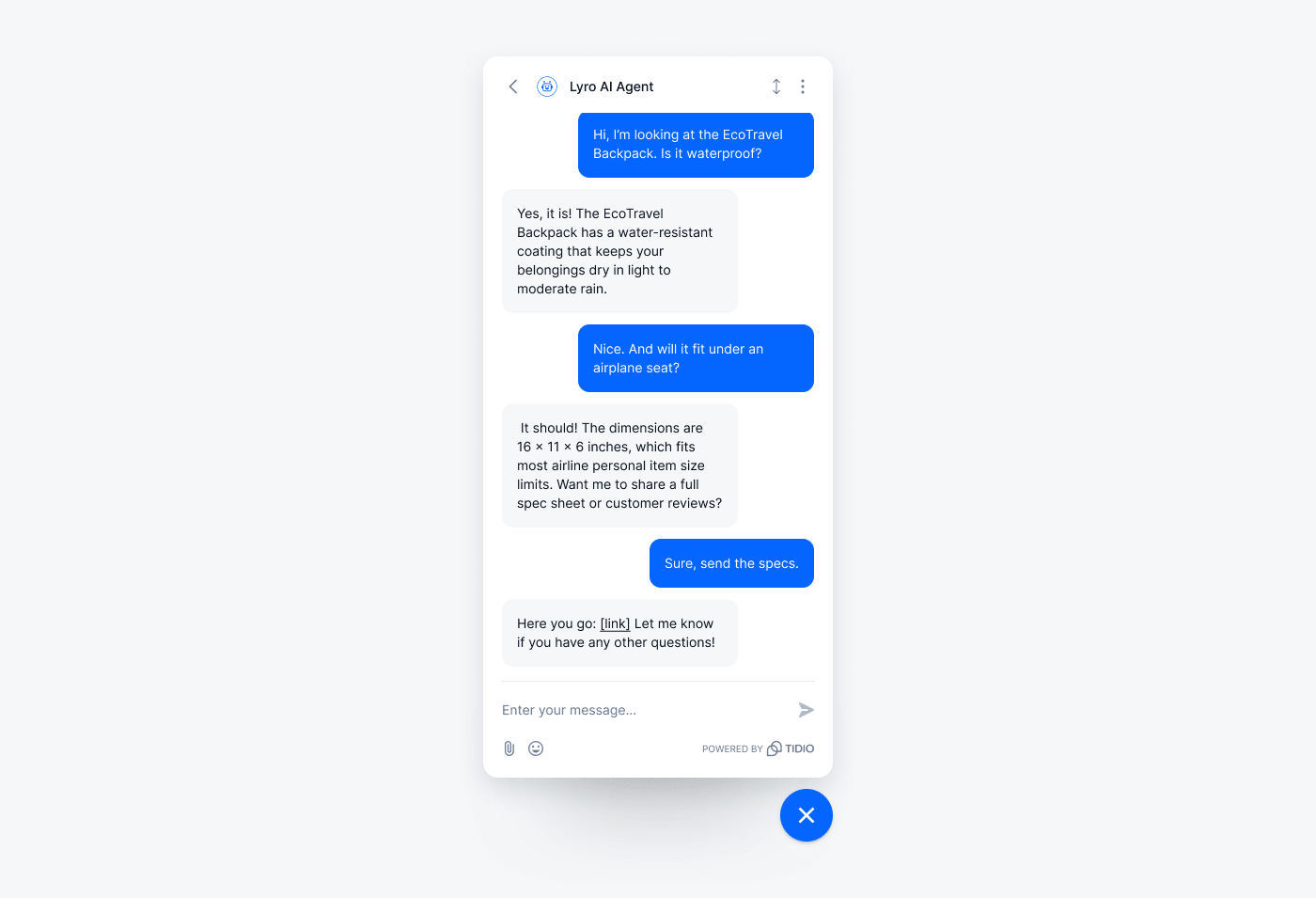
Read more: Take a look at our complete guide to ecommerce sales funnel optimization.
Fintech
AI agents for fintech help manage sensitive conversations while ensuring users get clear answers that align with compliance standards.
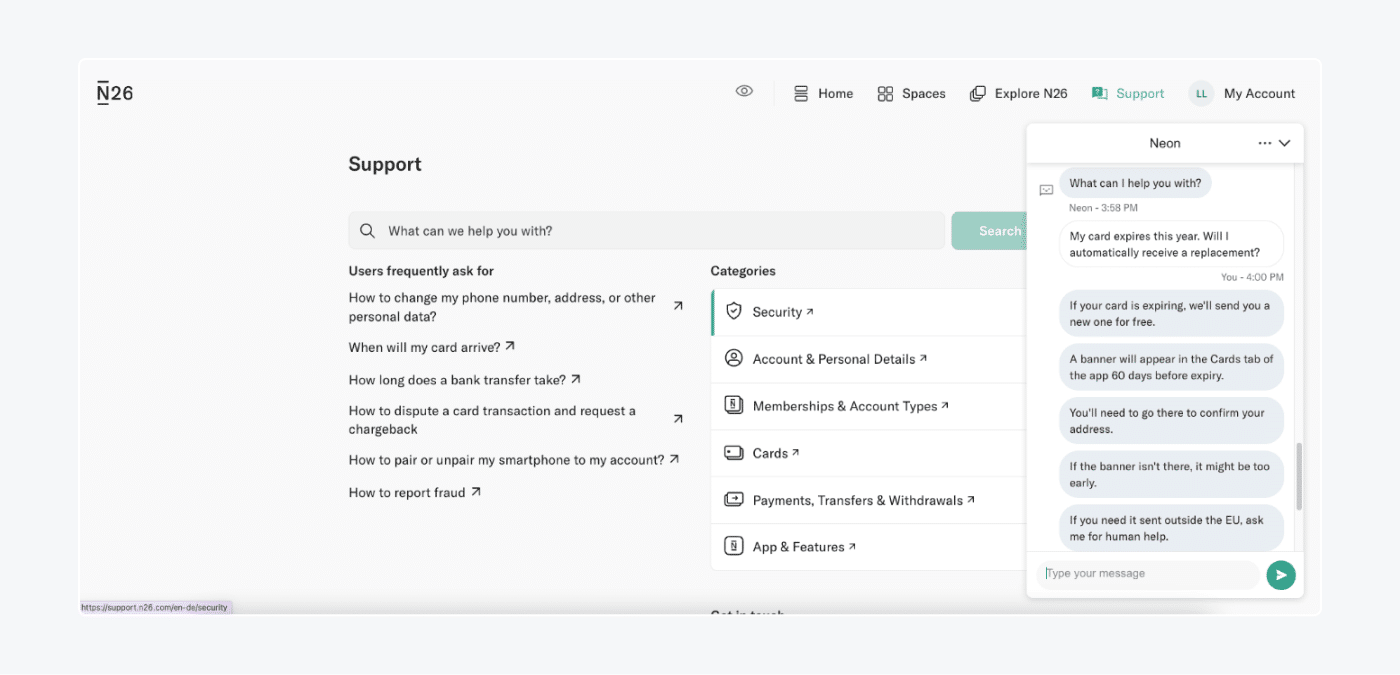
A good example of a company that put this into practice is N26, a mobile bank that operates across multiple European markets. To keep up with its rapid growth and multilingual customer base, N26 introduced an AI assistant built with Rasa. The assistant now handles 20% of customer service requests, including complex tasks like lost card reports, across five languages in both the mobile and web apps. By customizing the AI with its own data, the company improved both speed and quality of service without compromising security.
Real estate and services
Whether it’s a question about a property listing or a request to book a consultation, prospects expect answers right away, even if it’s after hours. AI agents help keep those conversations flowing without relying on your sales team to be online 24/7.
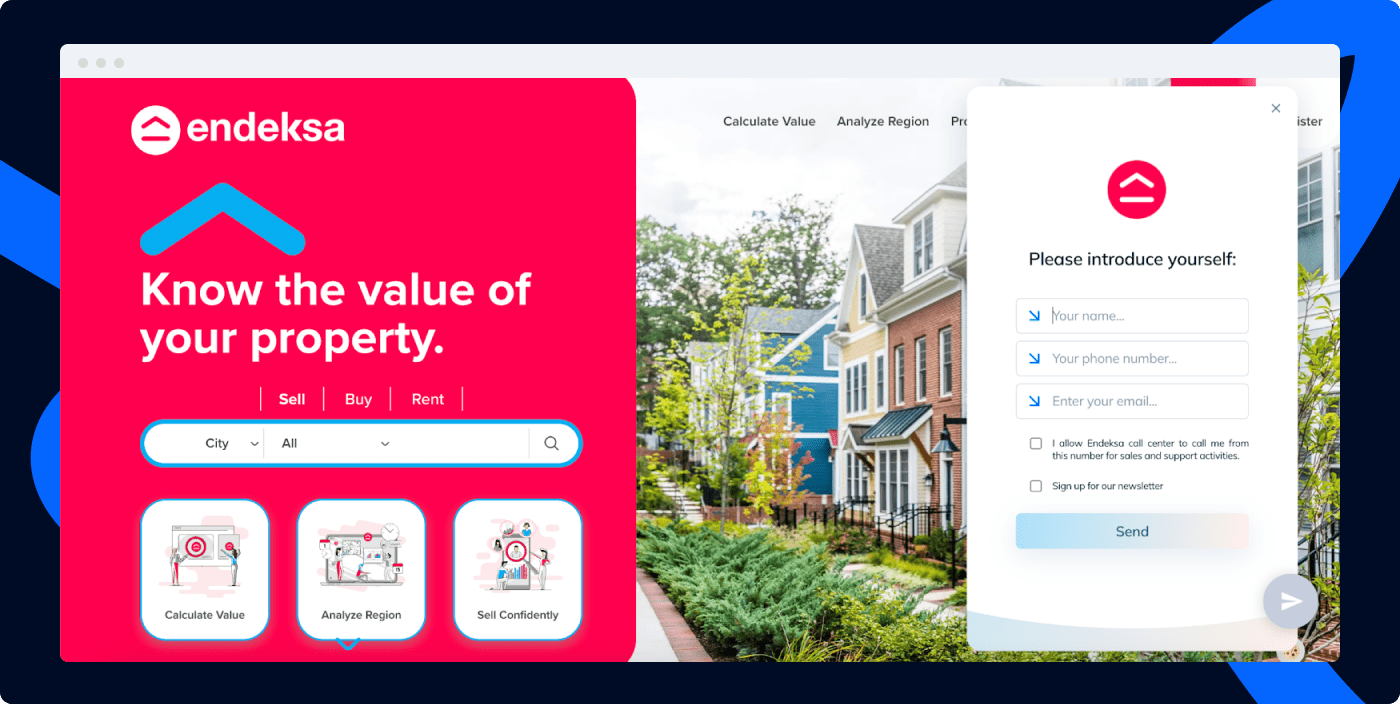
Take Endeksa, for example. This real estate analytics platform uses Tidio and Lyro to split inquiries between support and sales, making it easier to prioritize each query. With pre-chat surveys and real-time lead capture, the company has seen a 138% increase in lead generation and managed to cut response times by 59%. Lyro helps collect customer data, guide users to the right service, and even gather feedback, all while keeping the experience smooth and personal.
Read more: Learn how to use real estate chatbots to drive leads.
How to get started with a sales AI agent
Bringing AI into your sales activities doesn’t have to mean reinventing the wheel. With the right setup, you can automate the time-consuming parts of your process. Here’s how to ease into it and build an AI sales strategy that supports your goals.
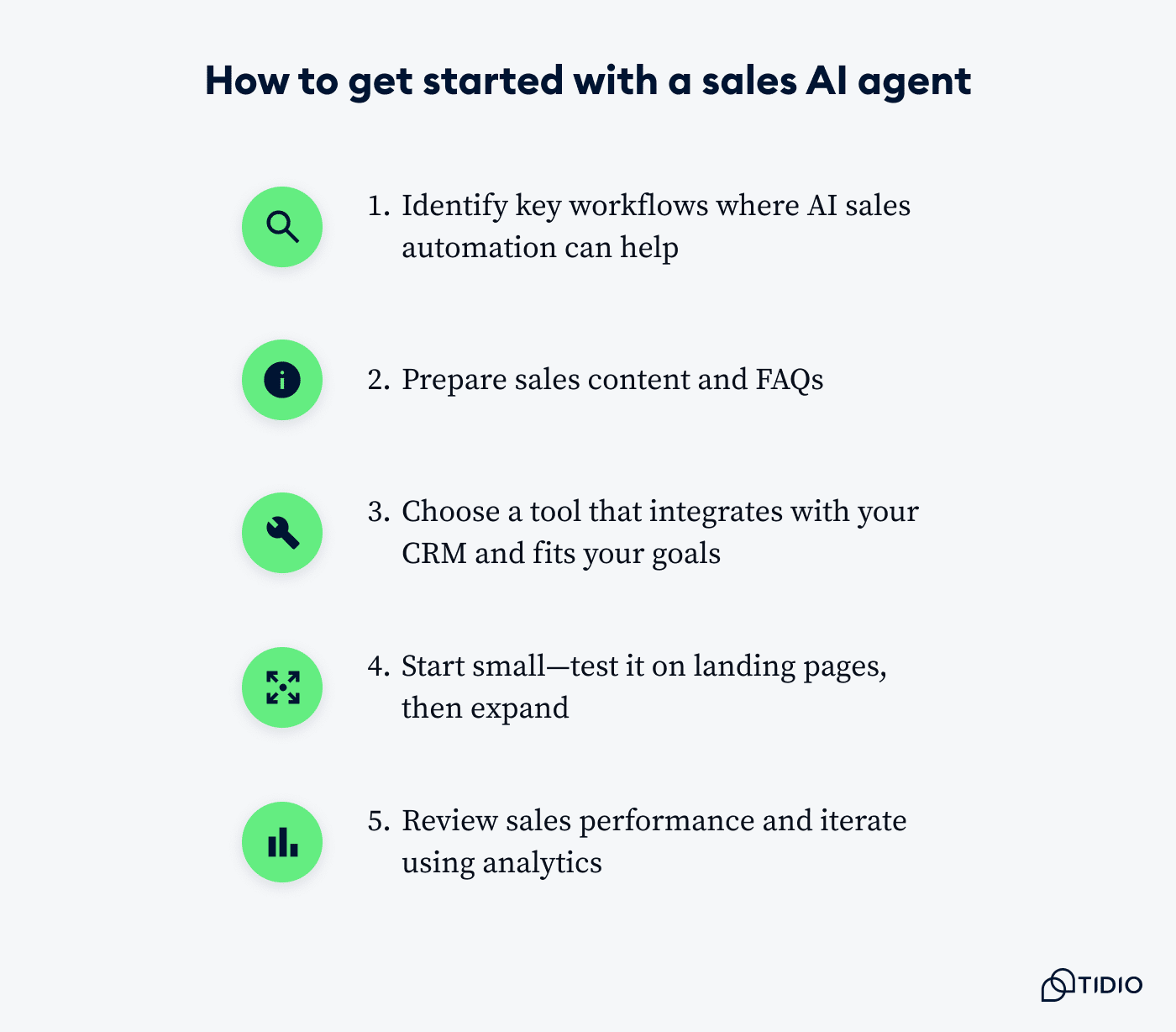
1. Identify key workflows where AI sales automation can help
Start by pinpointing areas where your team spends the most time, like answering the same questions, qualifying leads, or scheduling demos. These are perfect opportunities for AI to step in. Think about what slows things down or causes drop-offs in your funnel. That’s where a smart assistant can make a big difference.
2. Prepare sales content and FAQs
Your AI agent is only as helpful as the information it has access to. Add common questions, product details, pricing explanations, and sales documents to its knowledge base. This helps the system respond confidently to inquiries and guide conversations naturally. You can always expand this content later, but starting with clear and accurate material will give you a solid foundation.
3. Choose a tool that integrates with your CRM and fits your goals
Look for an AI-driven platform that works with your current tech stack. For example, Lyro runs within Tidio, but it also connects with external tools, so you don’t need to rebuild your systems just to use it. Whether you’re managing outreach, capturing leads, or following up, integrations help keep everything in sync.
4. Start small—test it on landing pages, then expand
There’s no need to launch across every channel right away. You should begin with high-traffic areas like a product or pricing page, where visitors often have questions. Once you’re confident it’s helping and the setup feels right, expand to other touchpoints like email or contact forms.
5. Review sales performance and iterate using analytics
Keep an eye on how your AI agent is doing. For example, with Lyro, you can track resolution rate and handoff metrics to see what’s working. That way, if it doesn’t have an answer to a question or conversions are low on a page, you can easily tweak the setup. The more you refine it, the more value your team gets.
Read more: Check out the best agentic AI companies you can use for your business.
AI agents are redefining modern sales
AI agents are quietly changing the rhythm of day-to-day sales work. Instead of juggling follow-ups or answering the same product questions for the fifth time in a day, reps can focus on what they do best—building real relationships and closing deals.
Tools like Lyro handle the behind-the-scenes work, jumping in when someone lands on a pricing page or asks about features. Using AI in sales operations is like adding another teammate who never sleeps or needs a break, but still keeps the tone on-brand and the conversation moving.
You don’t need to go all-in on day one, either. Start by automating the areas that eat up the most time, like handling FAQs or routing demo requests. From there, you’ll get a feel for what works and where AI can pick up more slack.
The point isn’t to replace your sales team, but to support it with tools that keep things running smoothly behind the scenes. A few small changes can open the door to bigger, more meaningful results.
Discover how Lyro helps sales reps convert more leads with less effort

